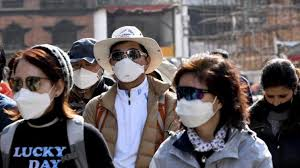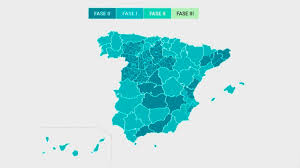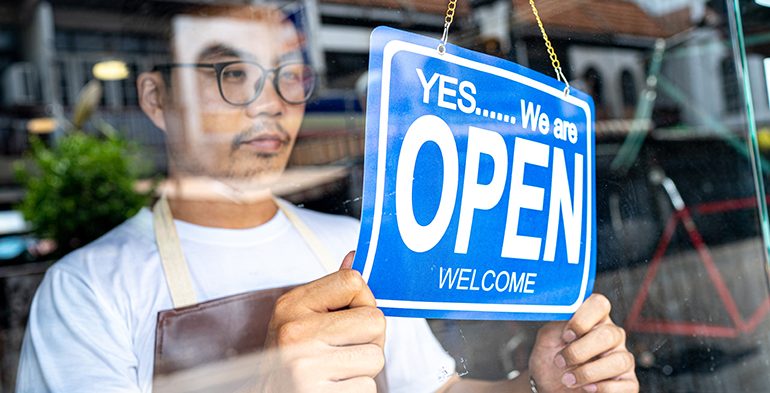How has your first week of relative freedom gone? I imagine the majority of you feel relief now you can finally venture outside for some fresh air and real exercise. After a few days of mainly inputting accounts, I’m switching from numbers to letters with another update of the situation in Spain. President Pedro Sánchez confirmed yesterday afternoon (May 6th 2020) that the State of Emergency has been extended for the fourth time to midnight on 24th May 2020. This measure has been authorized by Congress for health, economic and social reasons.
Seven and a half weeks ago, the spread of the virus increased by 35% on a daily basis, but this has now reduced to 0,31% which is a remarkable improvement. This means the National Health System is no longer collapsed.
The reduced rate of contagion allows for Sánchez’s plan to de-escalate enforced limitations in stages so the “return to normal” can be done gradually. For these restrictions to be slowly lifted, it is important to point out that the State of Emergency must remain in effect, which is the constitutional tool that governs the country when pandemics or other health-related emergencies arise. With that in mind, it only seems logical to think this won’t be the last time it will be extended.
The one thing that worried me when I first heard chatter of lifting restrictions etc., was that it would be done abruptly which would completely invalidate everything we’ve been through and sacrificed since 15th May. Sánchez insists it would be a mistake to lift the State of Emergency without taking appropriate steps first to ensure our continued safety.
We’ve all heard about the four phases he intends to implement (I know I’m late to that party, but here goes anyway…):
PHASE ZERO: This phase began when children were able to outside for an hour a day and now adults can also enjoy certain freedom. It also includes the reopening of retail establishments (prior appointment) and limited restaurant service.
PHASE ONE: Reopening of other businesses under strict guidelines, except commercial centres to prevent crowds. Restaurants may open terraces with a 30% of maximum occupancy and hotels and touristic accommodation can begin to work (excluding communal areas). It may also see gyms begin to operate again under extreme hygienic conditions.
PHASE TWO: The interior space in restaurants may be used again with limited seating and the appropriate safety distance between them. The new school year will start in September generally speaking. Cinemas, theatres, auditoriums etc., can reopen to 30% of capacity. Open-air events can go ahead as long as there are less than 400 people. Religious centres must limit occupancy to 50%.
PHASE THREE: Movement in general will be more flexible, however, the use of face masks outside of the home and on public transport is recommended. Retail must limit capacity to 50% ensuring a minimum 2 metre saftey distance between people. Restaurants will have less restrictions also.
There is an expected minimum two-week period between phases as long as the virus does not progress and remains “under control” throughout Spanish territory.
Each Autonomous Region will have the ability to have input into the development of each phase and must inform the Central Government which territories will advance, measures to be adopted, analysis of the health system and any other relevant economic, social or movement related data. This week it emerged that this will also depend on the each regions capacity to install between 1,5 and 2 beds for each 10.000 inhabitants in the Intensive Care Unit within five days.
With that in mind, the President of the Canarian Government said yesterday, that “generally speaking”, the Canary Islands’ meet the criteria established by the Central Government to transition to Phase One, but further confirmation is required. We will have to see how well Fuerteventura fares. The islands carry out on average more than 2200 COVID-19 tests each day, and in the past few weeks no more than twelve new cases a day have been logged (some days no new cases).
Phase One does not mean we would be able to travel between islands because the territorial reference for each phase that must be reported on are individual islands, so data cannot be mixed in any way. He also spoke about the possibility of additional measures being implemented for reopening of commercial establishments that are not located in shopping centres. In any case, our situation in the Canaries is unique, because on the one part, we have been able to weather the pandemic better than the mainland because we are insular, but on the other hand, our main industry is tourism, so until borders are open, our options are limited. We will have to see how successful our representatives are at getting our unique circumstances across to the Central Government, although caution is still required despite the difficulties we are facing. It is a tough call!







